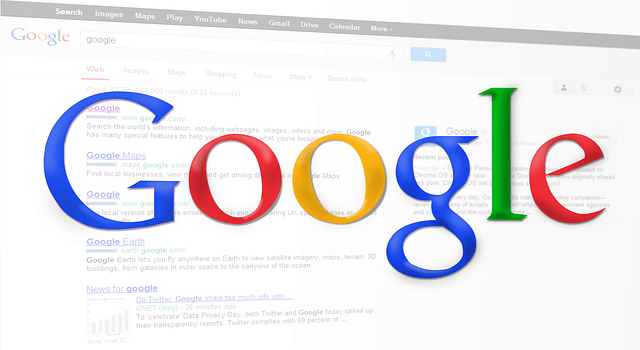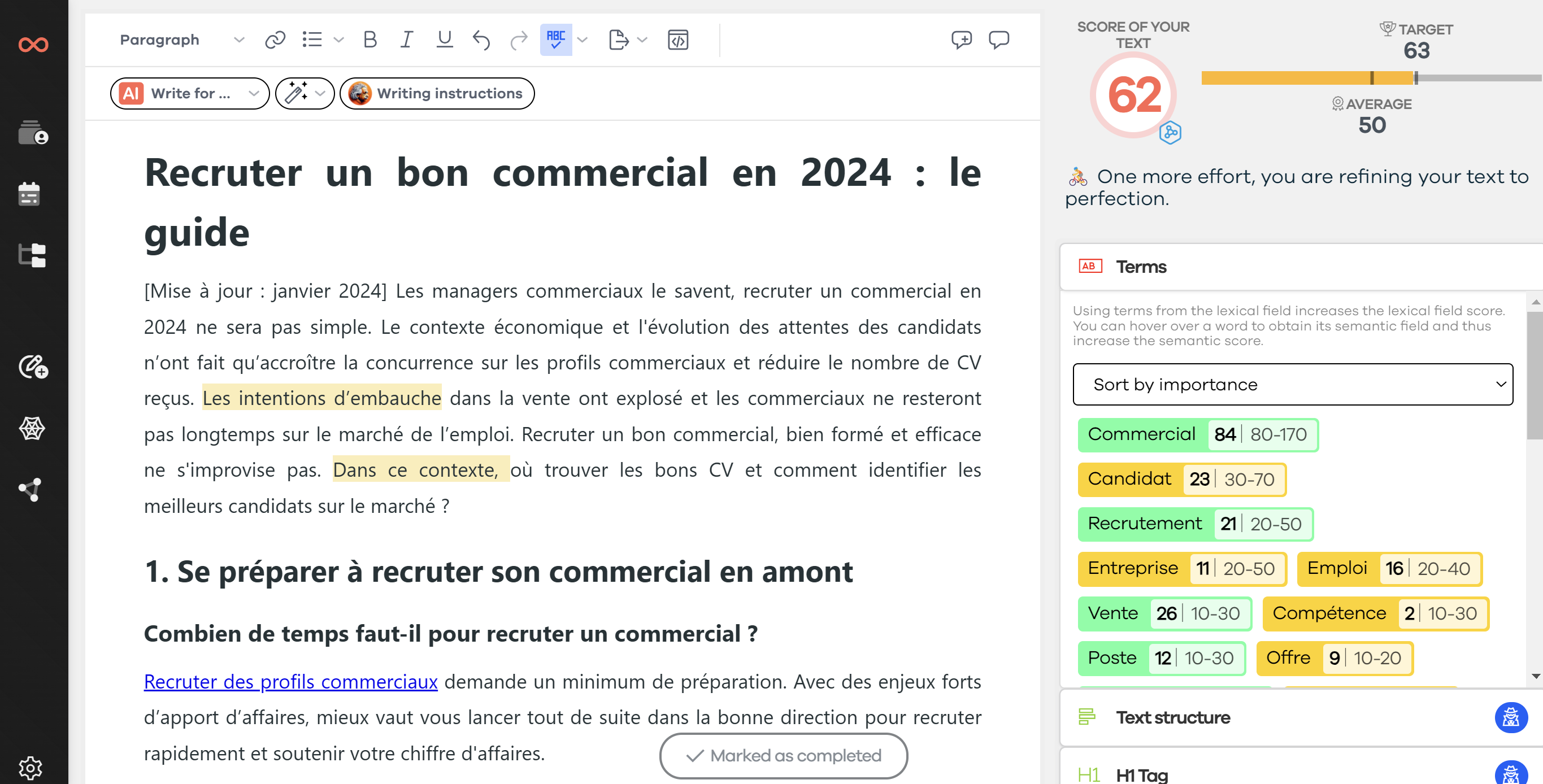Are you tired of Google changing your title tags? I understand! We spend time refining the titles of our pages to optimize our SEO and improve click-through rates, and all this work is thrown away by Google. How frustrating!
However, there are good reasons for the search engine leader to do this! Called Titlegate, the massive rewriting of titles displayed in the SERP aims to provide better consistency between the promise made by Google and the content offered by the website.
Considered a hotspot for SEO, the page title not only influences SEO but also click-through rates (some businesses have lost up to 50% of their traffic!).
I invite you to discover this complete file on the title reformulations by Google and offer you 8 tips to remedy it!
🚀 Quick read: what you will learn about Titlegate
In this complete file on Titlegate, you will discover the following elements:
- the percentage of title tags rewritten by Google,
- Google's reasons and their way of reformulating a title,
- the impact of Titlegate on organic search,
- 8 tips to avoid the rewriting of your title tags.
📊 Titlegate: 61% of title tags are rewritten by Google

The study conducted in 2022 by Zyppy[1] (updated in June 2023) showed that 61% of titles displayed in the SERP are rewritten by Google. To ensure a consistent result, they analyzed no less than 80,959 title tags among 2,370 websites worldwide.
To conduct this investigation, Zyppy relied on an earlier study by Dr. Pete J. Meyers[2] (marketing researcher at Moz) and research work by Alexis Rylko[3] (SEO technical director at IProspect). The former found a reformulation rate of 83%, while the latter, based solely on major rewrites, obtained a result of 40%.
Moreover, all these researchers seem to agree on one point: the titles displayed in the SERP can vary depending on the query and the device used. Other factors, such as search history or location, may also influence the title chosen by Google.
However, in the study conducted by Zyppy, 3 main factors for rewriting title tags were identified:
- the length of titles,
- the use of brackets instead of parentheses,
- the influence of separator choices
Other elements also seem to motivate Google to change the SEO titles displayed in the SERP. But before presenting all these factors, I suggest you understand how Google proceeds to choose the titles offered in the search engine results pages.
🔎 How does Google generate the titles displayed in the SERP?

On September 17, 2021, Google published crucial information on its blog about the generation of titles displayed in the results[4]. Surprisingly, the Mountain View Giant announces figures significantly different from those announced in the research. Indeed, according to them, 87% of the titles displayed correspond to an HTML tag (title, H1, or H2).
However, Google provides important information in its article that helps to better understand the reasons for this title tag reformulation:
- half-empty titles: to complement the title, Google examines the information in the page content;
- outdated titles: Google automatically changes the title when the year displayed in it does not match the main title of the page (H1);
- inaccurate titles: when the title does not accurately reflect the content of the page, it is reformulated;
- recurring titles: if several of your pages have the same title tag, then Google will want to add information to clarify the topic discussed.
Google then gives advice to website owners to improve the titles of their pages. In addition to emphasizing the quality of the HTML tag and controlling the rewriting factors mentioned above, they suggest referring to their help page dedicated to title links in search results[5].
Here are, according to the search engine, the 8 elements to consider to avoid title rewrites:
- make sure each page of the site contains a title in the
element, - write a descriptive and concise title,
- avoid keyword stuffing,
- do not repeat text in the title,
- add the brand name,
- clearly identify the main title (H1),
- be careful with crawl prohibitions on the page (robots.txt),
- use the same language as in the main content.
🎯 The impact of Titlegate on SEO

As for organic search itself, there is no reason to worry. Indeed, the keywords added to the title tag are still taken into account by Google's algorithms. At first glance, the impact of Titlegate seems to be only a matter of appearance.
However, the repercussions of this new display influence other essential parameters for your content marketing. Indeed, a reformulated title has the simple purpose of informing the user as best as possible about the content of the presented page. And this can have a significant influence on two fundamental elements of online commerce!
- The click-through rate (CTR) is the ratio that indicates how often a user clicks on a link displayed in Google's SERP. It thus allows you to analyze the performance of your web pages on different keywords. Since the title is an essential element to make users want to click on a link, its automatic reformulation can have a catastrophic effect on the CTR (I have observed a 50% drop in traffic on some websites!).
- The number of conversions is directly influenced by the click-through rate. Indeed, it doesn't take a great scientist to understand that if your commercial pages suffer a drop in traffic, your sales will decrease!
Therefore, even if the SEO impact of Titlegate seems non-existent, you should absolutely take the time to optimize your title tags so that they are displayed in Google's SERP! Discover without further ado 8 tips to achieve this!
🤩 8 solutions to prevent Google from changing your titles

Based on the studies conducted on Titlegate, you will find that many factors strongly influence the rewriting of titles by Google. Here is a summary of the best practices to implement when writing your title tags.
1. Match the SEO title and H1
It is very common for Google to use the H1 tag when rewriting the title displayed in the SERP. This is most often the case when the title is considered too commercial or its relevance is not optimal compared to the page content.
Therefore, we recommend that you match these two elements. However, this does not mean that they must be identical! Nevertheless, it would be wise to provide the same type of information in both tags.
2. Choose keywords similar to Google queries
Google tends to rewrite a title that is too generic or irrelevant. This is often the case for home pages that too often have this simple term as a title. Indeed, this information does not answer any search that a user could perform.
That's why we strongly advise you to write a title tag that matches the types of queries made by Googlers. To achieve this, don't hesitate to get inspired by the suggestions made by our semantic analysis tool!
3. Do not repeat keywords in the title
Repeating a word in a title is considered by Google as keyword stuffing! It has been observed that titles containing the same expression multiple times are more likely to be reformulated by the search engine.
For an optimal strategy, you should favor the use of synonyms and variations in your titles. This is especially important if your company name is added to the title and it includes a main keyword.
4. Avoid uninteresting and generic formulas
To illustrate this point, let's take the following example: "Best pet store in France". Not only could this title be written by all businesses in the sector, but it also has a purely marketing objective that could mislead the reader.
Since this type of title tends to be reworked by Google, you should use them only if they are completely relevant to the content offered by your page. Because even if these texts are not necessarily bad, they will only be displayed if they match the information you provide!
5. Use the right title separators
To structure a title, it is common to use separators ( "-", "|", "/", ">", etc.). However, according to the study conducted by zyppy.com, it seems that Google does not like all of them! As a result, most titles containing separators are reformulated!
However, one separator seems to be more appreciated than others in the SERP. Therefore, we recommend that you favor the hyphen ("-") when you want to separate the content of your title tag.
6. Favor parentheses over brackets
Apart from separators, another technique to divide a title and highlight information is the use of (parentheses) and [brackets]. Once again, the analysis of thousands of SERP results from Google has shown a difference between these methods: 77.6% of titles with brackets have been reformulated, compared to 61.9% for those with parentheses.
That's why the recommendation on this subject is obvious! If you absolutely want to insert an element of this type in your title tag, favor parentheses!
7. Do not divide the title tag into sections
Based on points 5 and 6, you will certainly understand that by dividing your titles, you increase the chances that Google will rewrite them. Therefore, a title containing only one sentence is certainly the best way to see it displayed as is in the SERP!
8. Check the length of the title tag
With more than 95% rewrite rate, titles that are too short or too long are most often reworked by Google. It goes without saying that your priority is, first and foremost, to make sure you offer a title of ideal length!
According to experts, the best way to avoid a reformulation is to provide a title tag between 51 and 60 characters. Indeed, when analyzing more than 80,000 titles displayed in the SERP, it was in this range that there were the fewest reformulations made by Google.
More than half of the titles displayed in the SERP do not correspond to the title tags of the proposed pages! Although the rewriting of titles by Google has no direct influence on SEO, a decrease in click-through rates and conversions is expected.
Titlegate does have negative repercussions on the activity of websites and their profitability. To prevent the search engine from reformulating your titles and thus lose up to 50% of your traffic, I remind you of the 8 tips to optimize the title of your pages:
1. match the
2. choose keywords corresponding to Google queries,
3. remove repetitions,
4. avoid generic formulations,
5. use a hyphen as a separator,
6. prefer parentheses to brackets,
7. minimize divisions of your titles,
8. write a title tag ranging from 51 to 60 characters
Anthony had already warned you on LinkedIn about the risks associated with Titlegate (see his post). But he offers you a free and innovative solution to monitor the click-through rate of your website!
A Google Data Studio that allows you to identify and evaluate the CTR of your pages after this Google update: click here to open this GDS.
🙏 Sources used to write this article
[1] https://zyppy.com/seo/title-tags/google-title-rewrite-study/
[2] https://moz.com/blog/title-tag-rewrite-case-study
[3] https://alekseo.com/google-august-2021-title-tag-update/
[4] https://developers.google.com/search/blog/2021/09/more-info-about-titles?hl=fr
[5] https://developers.google.com/search/docs/appearance/title-link?hl=fr
Need to go further?
If you need to delve deeper into the topic, the editorial team recommends the following 5 contents:

